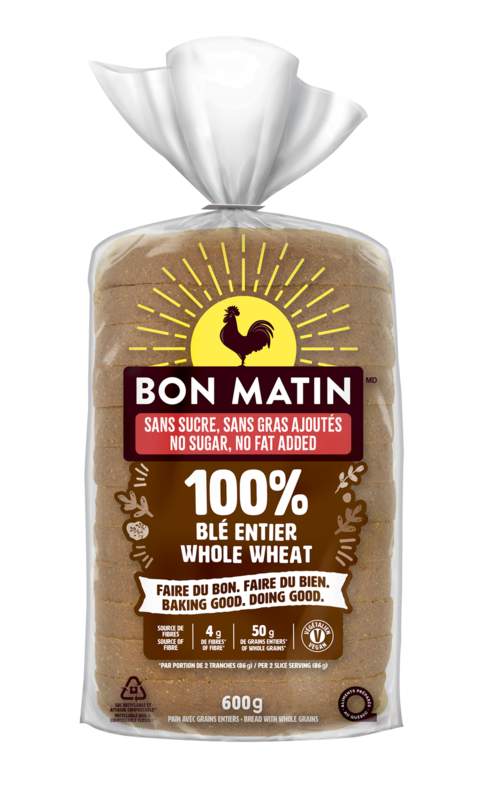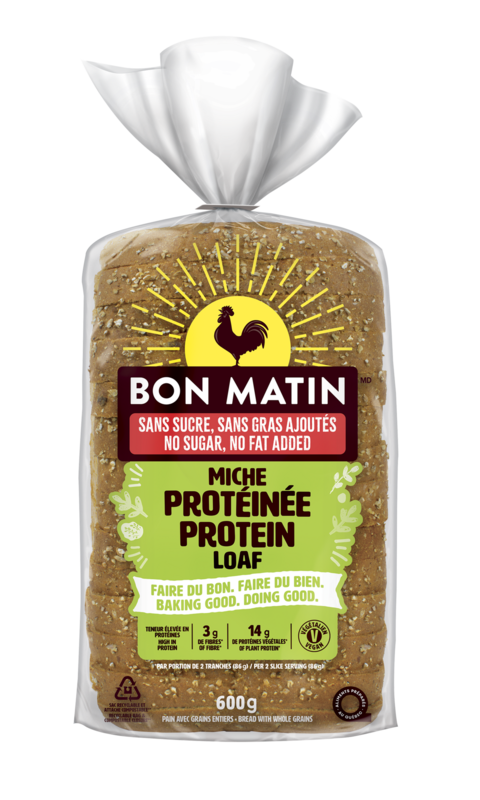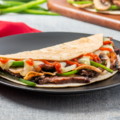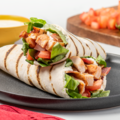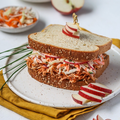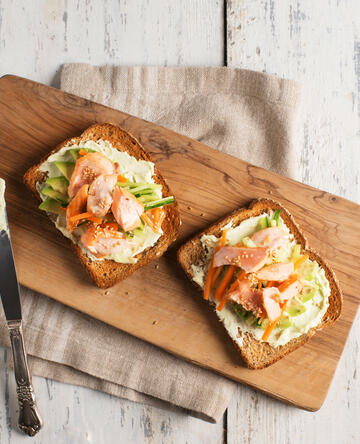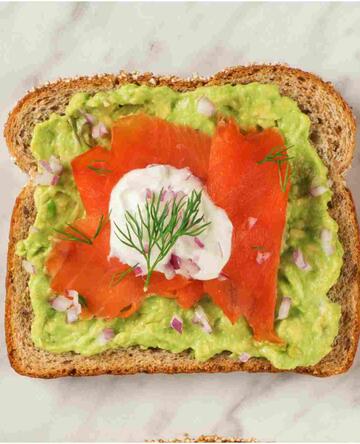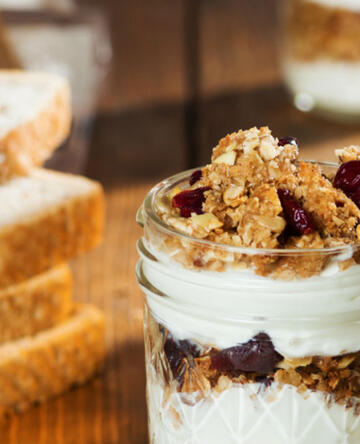Recipes
122 recipes
Articles
25 articles
Daily protein - it’s important!
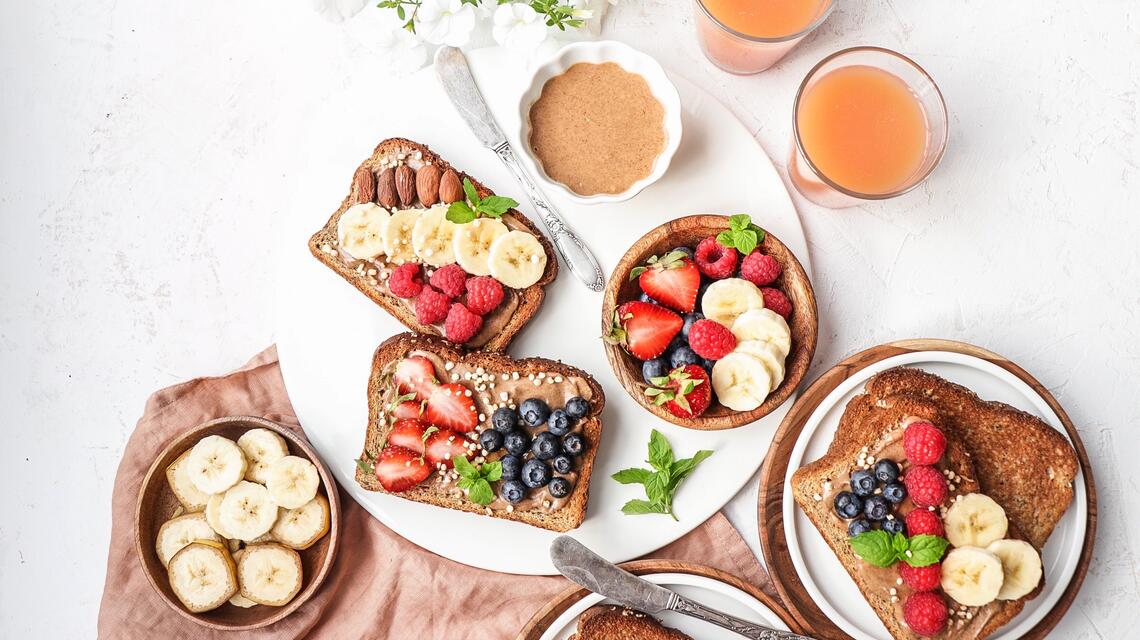
Proteins are essential for development and they help preserve muscle tissue. They're an important part of a healthy diet. Let's take a look at this essential nutrient.
It wasn’t long ago that protein was considered to be only for athletes! It’s a different story today. Grandparents and young kids need protein just as much as athletes do.
Your daily protein
According to the latest version of Canada's Food Guide, protein foods alone should make up about one-quarter of our plate.
The recommended intake for a minimally active adult will be between 0.8 and 1.0 grams per kilogram (kg) of body weight. For example, a 40-year-old woman who weighs 70 kg requires between 56 and 70 grams of protein daily.
You don't need to worry about these guidelines, because most people get enough daily protein! In fact, according to Health Canada, nearly 100% of Canadians consume the recommended amount of protein. The real challenge is how to better choose protein sources and distribute them throughout the day.
Why do we need protein?
Proteins are essential nutrients for the body. Think of it as construction or building materials.
It’s a bit like the bricks in a house, the purpose of proteins is to build new cells. They help renew muscle cells, bones, nails, hair, skin, but also form small internal messengers such as hormones, enzymes, and immune system antibodies.
Our bodies can't produce proteins on their own, so we need to get them from our food. Protein is essential for metabolic health. However, if you have too much protein, it can adversely affect longevity and metabolic health.
Quality before quantity
Many researchers suggest that the quality of the protein source is important.
Reducing red meat and animal protein in a protein-rich diet can have numerous health benefits. These include reduced risk of mortality, cardiovascular disease, cancer and chronic diseases like diabetes and kidney disease.
Choose lean proteins, like those in poultry, fish, seafood and game, and include plant proteins in your diet as much as possible. Some good options are legumes, soybeans and soy derivatives (textured vegetable protein, tofu, tempeh, edamame, roasted soybeans) and some whole grain products.
Whenever possible, choose local, eco-friendly and sustainably sourced products, which often guarantee quality.
What's the best way to spread out your daily protein?
More to the point, protein can help you better manage and curb your hunger during the day. Be sure to distribute it evenly throughout the day and evening.
The right distribution helps you feel full and avoid hunger pangs. Breakfast is usually the meal with the least protein, while dinner is the opposite.
Try to evenly distribute protein across all meals, aiming for at least 20-30 grams of protein/meal.
Where do we get protein?
Protein is everywhere in our diet.
Along with meat, poultry, and fish, you can find protein in meat substitutes or imitations that are more and more popular.
Legumes, tofu, textured vegetable protein (TVP), tempeh and seitan (wheat protein) are popular plant-based proteins for vegetarians and vegans.
Seafood, eggs and dairy products, nuts and seeds also provide a good amount of protein. Vegetables also contain some protein.
Finally, whole grains and pseudo-cereals are protein-rich. Good examples are quinoa, barley and wheat germ.
There are other innovative high-protein choices. For example, some breads, cereals or bars are fortified with pea protein or other legumes, so it’s even easier for you to add protein to your diet.
Protein ideas for every meal
Breakfast
Wake up to protein: eggs, low-fat cheeses, cottage cheese, Greek yogurt, skyr, milk, soy beverage, nuts, nut butters, and some protein-enriched products (such as some breads).
Lunch
Get lunchtime protein in a turkey sandwich, legumes in a soup (lentil, beans, etc.), a tuna salad, or chicken in a homemade wrap.
Dinner
Dinnertime proteins are found in: General Tao tofu, shrimp in stir-fry, salmon tartare, ground meat in shepherd's pie, or poultry with jasmine rice.
Snack time
When it comes to cravings, there are plenty of healthy protein sources in dairy products like cheese, kefir or yogurt, nuts and seeds like almonds, cashews and pumpkin seeds, and of course, hard-boiled eggs!
